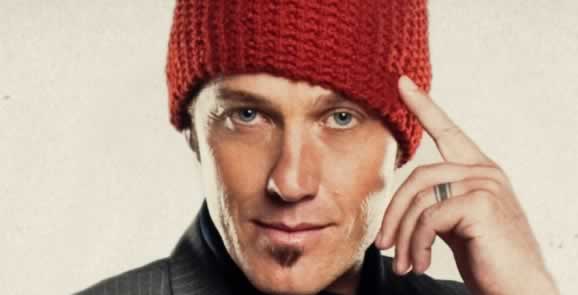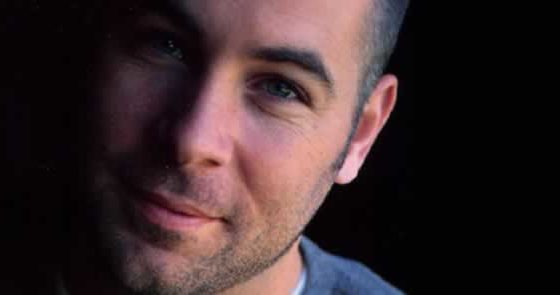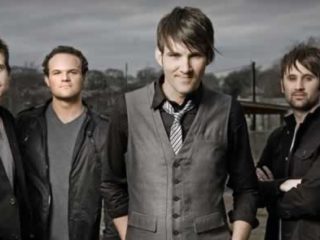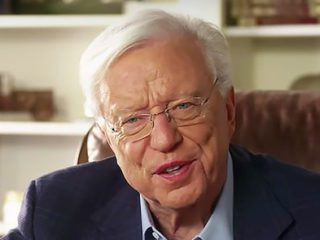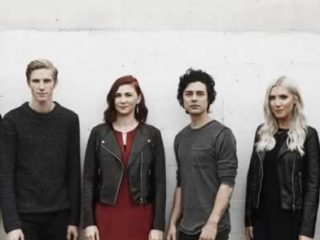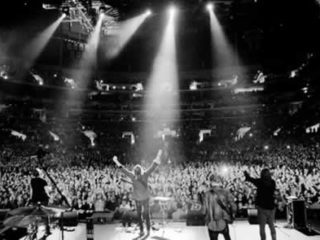Technically, he might not qualify as a renaissance man since he doesn’t seem to be doing much to advance the frontiers of mechanical engineering and mathematical theory, but all the same, tobyMac’s a pretty talented, pretty busy, multifaceted guy. From business to production to artistry to advocacy to philanthropy, he’s had a hand in much of the movings and shakings going on in recent years, not just in terms of what we hear on the radio, but in terms of the larger, evangelical church-shaping conversation as well.
And while he’s one of the most genial, unassuming and genuinely friendly multi-Platinum artist/moguls you’re likely to ever meet, at Toby’s core is a bit of a bulldog who’s unwilling to compromise the things he believes are of fundamental importance. So whether it’s a question of passion vs. commerce, family vs. career or racial reconciliation vs. the status quo, Toby is all about making conscious choices and leaning into the art, the life, the culture, the journey, come what may. He’ll push; he’ll inspire; and, as his music suggests, he’d also like to celebrate a little along the way if you don’t mind, because, after all, isn’t history moving toward one really big party?
The recent release of Toby’s third-and fastest-selling-solo project, Portable Sounds (ForeFront), finds him once again set loose in a playground of current hip-hop and alt-pop influences. But it also finds him passionately articulating for the umpteenth time, in case some of us don’t quite get it yet, some of those same core themes that have long been his mission, including the emphatic “love thy neighbor.”
Portable Sounds is, in fact, bookended by cuts that evidence that passion. The opener, “One World” is a straightforward, welcoming invitation to lay down the prejudices that divide us and, in light of the coming great reconciliation we claim to believe God is drawing all of history toward, to begin to live our lives as reconcilers now. The closing cut, “Lose My Soul” simply stands as good evidence of the way that reconciling vision works its way into every aspect of Toby’s life and art. The track, which features Kirk Franklin and “American Idol” luminary Mandisa, is Toby’s wrenchingly honest prayer to stay true to the main narrative in his life. The subtext of the track, though, is the two-way-street of Toby and Kirk’s friendship and mutual commitment to cooperatively build bridges between “black music and white music.” Which, of course, isn’t really so much about the music as it is about finding ways to bridge some of the long-standing rifts between white and African-American believers.
Because racial reconciliation and the appreciation of diversity have remained front and center for Toby for more than 15 years, we decided to dig a little deeper into the subject.
“My passion for reconciliation was rooted in how I grew up,” he says, though it took him a while to realize not everyone shared his privileged upbringing. Of course, when Toby speaks of a “privileged upbringing” he’s not referring to a posh crib and an Ivy League education. He’s talking about a richness of diversity in relationship and the things you take for granted at Luther Jackson Intermediate School in the D.C. suburbs.
“It was interesting to be in a bi-racial group,” he says, referring to his years in dcTalk, “and to travel the nation opening for early Christian pioneering rock bands and rarely see a black face in the audience for years? I started to understand that not all people had the experiences I grew up with. Not everyone got to see the beauty in their fifth grade class of having three Asian people, two Latinos, three black people and eight white people. Not everyone had that.”
While national touring offered Toby firsthand observation of the “by default” segregation of much of Christianity and began to awaken a sense that something wasn’t quite right, it was a jolting incident on board an airplane in the early ’90s that finally spurred him to devote a significant amount of energy to reconciliation advocacy.
“[dcTalk co-vocalist Michael] Tait and I had sat together laughing and having a great time this whole flight,” Toby remembers. “When we landed, Tait got up out of his seat and began to walk down the aisle. I was getting my bag from the overhead bin when this big guy behind me grabbed my shoulder. He looked me in the eye and said, ‘N — — r lover.’
“I just looked at him. It blew my mind. I had never heard anything that direct? That’s when I started writing songs about it.”
In short order, the writing of songs led to further action, like the 1994 formation of Gotee Records which has a track record of being, pound for pound, one of the most racially diverse labels around. And even more specifically, the formation three years later of the E.R.A.C.E. (Eliminating Racism And Creating Equality) Foundation which has hosted concerts and forums on college campuses and donated substantial amounts of funding to individuals and organizations positioned on the front lines of racial reconciliation work.
“In our band, we would sit around on the bus and just talk about coming from different socio-economic levels, different parents, different races, different cultures, different parts of the nation; and we just find it so interesting,” Toby says. “And we thought, ‘The world needs to talk more like this. Then they would find out that, although we’re different, our differences are interesting; and if we just communicate about them, the myths go away. You begin to see who that person really is, and not be so intimidated or judgmental.”
When the E.R.A.C.E. Foundation tried to replicate those dynamic tour bus dialogues amongst college students though, the results were mixed. “It was interesting,” Toby recalls. “People want to shy away from that subject. They’re uncomfortable with it. People felt it was negativity. It wasn’t, but people felt that, like they were being pushed-I just heard a lady talking about racism on the radio yesterday, and she said, ‘Why do we need to stir all that up?’ And I was like, ‘Ah man, she just doesn’t get it, that we have to talk about it.’ [With E.R.A.C.E.] I thought you could talk about it by pushing a little bit. But the other thing you can do is inspire people, and I think that’s where the ‘Diverse City’ concept came from.”
First a T-Shirt slogan, then an album title and finally adopted as the name of Toby’s very diverse band (Incidentally, Toby and that band are now five songs deep into the recording of a collaborative “Diverse City” album project), the term “Diverse City” has really come to be an overarching concept, a goal, an articulation of Toby’s passion to see the church more fully reflect the glory of God by embracing and loving the beautiful diversity within it.
His cousin Joey Elwood, likewise a co-founder of Gotee Records and the E.R.A.C.E. Foundation, offers a personal and historical perspective on Toby’s efforts. “I think [racial reconciliation] is as big a part of Toby’s life now as it was the day he came to Nashville,” he says, “but I think rather than facing the issue with his intellect-reading books, essays, political com-mentaries, etc.-I think wisdom is more the path he’s treading these days. He’s tackling the problem through a different lens than in years past.
“As believers, we know racial reconciliation is ‘inside’ the bigger idea of reconciling our hearts to Christ, where profound behavioral change comes,” Elwood continues. “…What I’m most proud of with Toby on this issue is he’s more concerned with the eternal ramifications than the social ones. However, his compassion has never let him devalue the fact that people are hurting, and he’s willing to lend his platform to it-instigating whatever change can come through legal, social or political awareness, while never losing sight that curing the virus is much more important than curing the cough.”
Copyright © 2007 CCM Magazine, Used by Permission
Like what you’re reading?
Get the full scoop by subscribing to CCM today! Click Here

